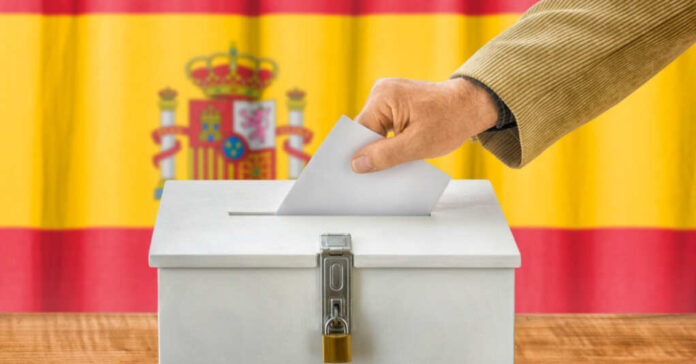
Just ahead of a major election, social media is blowing up with videos showing election workers stuffing ballot boxes, deceptive voter information, and hateful content. But it’s not the 2020 election, and it’s not America.
Welcome to Spain, where social media predicts election interference to enable a pivotal shift in power. In America, it’s called fraud. In Spain, it’s known as “pucherazo.”
The similarities between the Spanish candidates, representing the Popular Party (right-leaning), the Spanish Socialist Worker’s Party, and the 2020 American presidential candidates Trump and Biden, are undeniable.
The battle of good versus evil wages on, even outside our nation’s borders.
Popular Party leader Alberto Feijoo is concerned with potential mail ballot voter fraud. His concerns are something Republicans understand all too well. He recently urged postal workers to “work to the maximum, morning, afternoon, and night. He went on to add, “Regardless of your bosses, I urge you to distribute all the mail-in ballots on time.”
Following this rather pointed directive, however, Feijoo stated that he was not suggesting the postal service was trying to steal the election. He was, he explained, concerned about the challenges of overseeing all the mail-in ballots. “Nobody here is talking about pucherazo,“ he clarified.
But fears of election fraud in Spain founded. In May, the Spanish Civil Guard arrested ten members of the Socialist Party for allegedly buying postal votes during the country’s regional and municipal elections.
In another parallel to America’s own contentious 2020 election, a London-based nonprofit organization known as Reset has been flagging election-related “misinformation,” including alleged “hate posts” and “conspiracy theories.” “Election fraud narratives that undermine trust in democratic processes – and which also dominated the regional elections in Spain – are spread across platforms,” claims Reset, who identified eighty-eight social media accounts as “extremist.”
Reset blames the social media platforms for the spread of “misleading claims of voter fraud” because they are inconsistent. The platforms remove some “misinformation” posts and leave others online.
Spain’s electoral process, like America’s, has laws and audits designed to maintain its integrity. Critics claim that these laws and audits can be manipulated and affected by fraud, just as many Americans believed happened in the 2020 election.
Mail-in voter fraud is, contrary to what Democrats say, common enough that it is a global concern. In 1975, France banned mail-in voting after evidence of massive voter fraud was uncovered in Corsica. At the time, it was determined that ballots were stolen or purchased, dead people voted, and voters cast multiple votes.
In the United Kingdom, the Labour Party used widespread postal vote theft to fraudulently cast 40,000 votes in their favor for the 2004 election. Six Labour councilors were found guilty of electoral fraud.
In 1991, Mexico changed its election laws to include voter IDs and banned absentee ballots to combat the Industrial Revolutionary Party’s long-standing practice of using mail-in ballot fraud and intimidation to remain in power. While the law was changed again in 2006 to allow mail-in voting, the ballots are now restricted for citizens living abroad who request them six months in advance. In Poland and Japan, mail-in voting is strictly limited to those who hold disability certificates.
The Organization for Economic Cooperation and Development represents thirty-six countries, including the U.S., Portugal, Italy, Germany, Canada, and Belgium. Of these member states, 30% require a valid photo ID to access their mail-in ballots, 47% limit mail-in voting to those living abroad, and 14% ban mail-in voting completely. Russia and Brazil not only ban mail-in ballots, but they also require photo ID for in-person voting.
The European Union is made up of twenty-seven countries, each with its own strict requirements for mail-in voting. Sixty-three percent of them reserve mail-in ballots for those living abroad, and 22% require a photo ID to receive a mail-in ballot. Twenty-two percent of the European Union ban mail-in voting altogether.
The other sixteen countries outside of the European Union either require photo ID for mail-in ballots or will not issue them to citizens residing in the country. Sixty-three percent of these countries ban the practice completely.
These countries already learned what America learned in 2020. Election fraud does exist, and it’s widespread.
It’s entirely possible that in Spain, the Popular Party has a valid reason to fear “pucherazo” for a pivotal election. In Spain, as in America, it comes down to good vs. evil.
And if evil wants to steal elections, it will find a way to do it.














